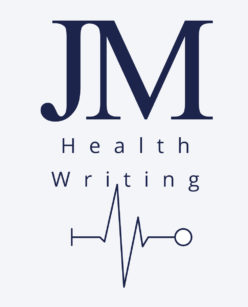Mental health apps have gained popularity during the pandemic, but are they useful for treating anxiety, depression, and stress?
While these apps can help with treating mental health conditions more research is needed. Many questions regarding regulation, and the ability to reach underserved populations remain.
In early 2021, researchers from Georgetown University examined studies of mental health apps to determine their efficacy in treating depression, anxiety, and stress.
Mental health apps may be useful for some
“The RCT evidence we reviewed here suggests that mental health apps can be beneficial to some people. It remains unclear; however, how effective mental health apps are in the context of the larger clinical toolbox for mental health or in specific subpopulations.”
Researchers identified 19 published, studies examining and use of mental health apps for managing depression, anxiety, and stress. All studies were peer-reviewed randomized clinical trials (RTCs). The studies included in this analysis examined the efficacy of self-contained app-based interventions. The study did not examine interventions such as telepsychology, or prescription management.
Limitations of the studies
18 of the 19 RTCs found significant reductions in self-reported symptoms of stress, anxiety, and depression. While these results are promising, researchers note that many studies had similar shortcomings. Lack of follow-up, lack of diversity, and a lack of sample size plagued the majority of the studies analyzed.
Many studies included a follow-up period of only 3 months. Therefore it is unknown whether these apps are helpful over longer periods of time. The majority of participants in these randomized control trials were young, white, and female. Therefore researchers are unable to determine how these apps may impact other demographic groups. The randomized control trials often had a sample size of 200 participants or less.
The researchers explained that if the apps are to be marketed as treatments for mental health conditions, the clinical evidence for these apps should be on par with “medical standards of care.” Mental health apps need to undergo testing similar to medications and other forms of therapy. As an example, for psychiatric drugs to receive F.D.A. approval, clinical trials must show efficacy in sample sizes of at least 300 participants.
A mental health crisis was already well underway in pre-pandemic times. By some estimates, only a third of those with a mental health disorder were receiving treatment. These low numbers can be due to a variety of factors such as a lack of coverage for mental health services by healthcare plans, and a stigma attached to mental health disorders.
Factors known to negatively impact mental health such as social isolation, unemployment, and economic recession are a reality for many during the Covid-19 pandemic.
Apps can pose a low cost and accessible solution
Mental health apps have grown in popularity over the past few years. Such apps can be appealing as they are low-cost, and do not require face-to-face interactions.
While discussion and treatment of mental health disorders have become more prevalent. The researchers warn that some of the apps available on the market may make unsubstantiated claims.
“Given the lack of regulatory oversight, there exists the potential for nonsignificant or adverse effects to go unreported. A well-defined pathway for premarket regulatory approval should be outlined for mental health apps because of the vulnerability of the patient populations that they target.”
